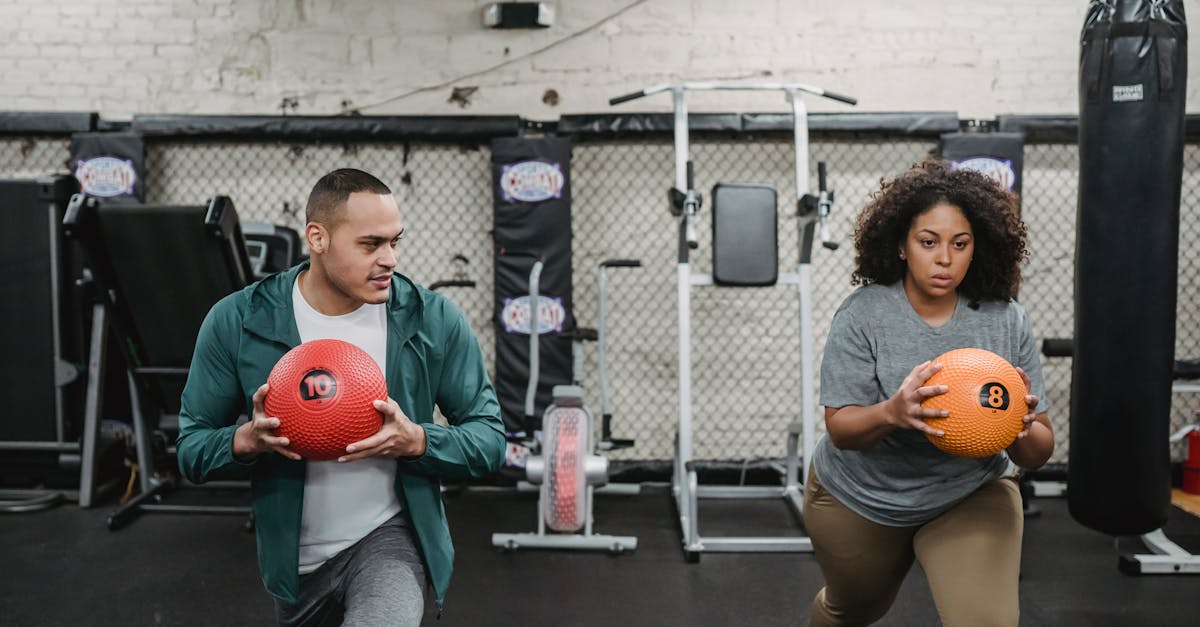In Short, supporting the shoulder with functional medicine refers to a holistic approach that addresses the root causes of shoulder pain and immobility. This method combines various therapies such as physical therapy and regenerative medicine to enhance recovery and promote joint health. The benefits include reduced inflammation, improved mobility, and a significant enhancement in the overall quality of life for individuals struggling with shoulder issues. Functional medicine works by encouraging the body’s natural ability to heal, thereby empowering patients to regain control over their health. |
Functional medicine offers a comprehensive approach for supporting the shoulder by addressing the underlying causes of pain and discomfort. Rather than merely treating symptoms, functional medicine emphasizes restoring balance and function to the shoulder joint through personalized therapies, nutritional support, and targeted exercises. Interventions may include physical therapy to improve range of motion, strengthening surrounding muscles, and utilizing integrative therapies that promote healing and tissue regeneration. Ultimately, the goal is to enhance mobility and reduce pain, allowing individuals to regain their independence and enjoy a more active lifestyle.

Experience Gentle Recalibration with Pulse Align
Discover a seamless path toward improved posture and overall well-being with Pulse Align.
Restoring Balance Through Innovative Techniques
Pulse Align offers a unique and non-invasive approach that utilizes gentle, imperceptible pulses to help restore your body’s natural balance and posture. By promoting muscle tone symmetry, clients often experience a reduction in discomfort and tension that may be holding them back from enjoying life to its fullest. This gentle method aids in fostering a more cohesive and stable physical state while allowing individuals to participate more fully in their daily activities.
Natural Recalibration for Enhanced Comfort
At Pulse Align, the focus is not on addressing specific pain or discomfort explicitly but rather assisting the body in its natural self-regulation processes. Clients often report notable improvements in their overall comfort as their bodies recalibrate naturally, leading to better posture and enhanced functional balance. This holistic approach aligns with promoting complete wellness without implying direct intervention in underlying issues.
Personalized Care That Makes a Difference
The experience at Pulse Align is tailored for each individual. Many clients have shared how they have witnessed significant improvements in areas such as neck and back tension, overall balance, and general wellness. Families are encouraged to explore the benefits of this service together, as it is designed to be inclusive and suitable for individuals of all ages, including children and expectant mothers.
Explore Your Wellness Journey
We invite you to visit the Pulse Align website to learn more about our innovative approach and find a nearby location, whether in La Prairie, Mont-Royal, or Terrebonne. Book a consultation for yourself or your family today! Pulse Align complements, but does not replace, medical care. It is essential to remain under the supervision of your healthcare team for any medical considerations. Embrace the journey towards better balance and harmony through our safe, non-invasive services.
Medical Disclaimer
The information provided on this site complements, but does not replace, medical care. Please consult your healthcare team for any medical conditions or concerns. All reported symptom relief stems from the body’s natural ability to restore balance, not from direct action taken by Pulse Align.
- Regenerative Medicine: Utilizes treatments that promote natural healing and tissue regeneration.
- Frozen Shoulder Management: Employs therapeutic exercises to improve mobility and reduce pain.
- Nutrition Guidance: Focuses on anti-inflammatory diets to support joint health.
- Physical Therapy: Incorporates personalized rehab programs for effective shoulder recovery.
- Holistic Approach: Addresses root causes, considering lifestyle and ergonomic factors.
- Alternative Therapies: Integrates acupuncture and massage for pain relief and relaxation.
- Supplements: Recommends collagen and omega-3s for enhanced joint function.

Shoulder pain can significantly hinder daily activities and diminish quality of life. An effective approach to alleviating and preventing this discomfort involves the integration of functional medicine. Unlike traditional treatments that often focus solely on symptom relief, functional medicine aims to address the underlying causes of shoulder issues, promoting optimal health and long-term recovery. This article explores various strategies to support shoulder health through functional medicine practices.
Understanding Shoulder Pain
To effectively address shoulder pain, it is essential to understand its origins. Common causes include overstretching of the supporting ligaments, leading to joint instability, pain, and restricted range of motion. Conditions such as frozen shoulder (adhesive capsulitis) are characterized by stiffness and pain in both active and passive movements. Identifying the specific cause of shoulder pain is crucial in formulating an appropriate treatment plan, allowing for tailored interventions that can promote healing.
Nutrition for Joint Health
Nutrition plays a vital role in supporting overall joint health and functionality. Incorporating anti-inflammatory foods such as fruits, vegetables, and fatty fish can help reduce inflammation and promote recovery. Additionally, collagen supplements can aid in maintaining the structure of joint tissues, promoting healing and improving mobility. Patients should consider adopting a diet rich in nutrients that foster healthy connective tissue, including vitamins C, D, and E, omega-3 fatty acids, and amino acids.
Integrative Therapies
Integrative therapies encompass various holistic practices that target not just the symptoms, but the root causes of shoulder pain. Techniques such as physical therapy and manual therapy can effectively alleviate stiffness, enhance strength, and improve the range of motion in affected individuals. These approaches encourage engagement and active participation, making recovery a collaborative process. Stretching and strengthening exercises specifically designed for the shoulder can also help stabilize the joint and alleviate discomfort.
Rehabilitation and Functional Exercises
One of the cornerstones of functional medicine is the emphasis on rehabilitation through targeted exercises. Implementing T-spine extension exercises can effectively support shoulder function by activating the small muscles along the spine, enhancing muscle coordination, and facilitating better shoulder alignment. Practicing stability exercises is equally important, especially for individuals experiencing shoulder instability. Focused physical activity allows for gradual improvement, ultimately increasing mobility and reducing pain.
Alternative Modalities for Pain Relief
Exploring regenerative medicine treatments, such as stem cell therapy or exosome therapy, holds considerable promise. These cutting-edge modalities encourage the body to regenerate tissue autonomously, addressing not only the symptoms but also the source of shoulder pain. Individuals experiencing chronic discomfort should consult with healthcare professionals regarding the potential benefits these therapies may provide in their journey towards pain relief.
Mind-Body Connection
In functional medicine, there’s a strong emphasis on the mind-body connection. Techniques such as mindfulness meditation, yoga, and breathwork can help individuals manage stress and anxiety that may exacerbate shoulder pain. Cultivating a positive mindset and fostering relaxation can significantly enhance the recovery process, allowing individuals to reconnect with their bodies in a more holistic manner.
Ultimately, supporting shoulder health through functional medicine involves a multi-faceted approach that incorporates nutrition, integrative therapies, rehabilitation exercises, and mindfulness practices. By addressing the root causes of pain and facilitating a comprehensive healing process, individuals can regain their mobility while enhancing their overall well-being. Embracing this holistic perspective aligns with the principles of Pulse Align, fostering neuromuscular health, symmetry, and systemic recalibration. This path empowers individuals to achieve their goals and embrace every moment, free from the constraints of pain.
| Aspect | Functional Medicine Approach |
| Pain Management | Utilizes natural therapies to promote comfort and ease discomfort through holistic methods. |
| Mobility Enhancement | Focuses on improving joint range of motion with gentle exercises and movements. |
| Inflammation Reduction | Incorporates dietary adjustments and nutritional support to help minimize inflammation. |
| Strengthening | Engages in structured routines to enhance muscle stability around the shoulder joint. |
| Postural Alignment | Promotes awareness of body alignment to prevent strain and enhance overall support. |
| Functional Movement | Encourages movement practices that restore balance and coordination in daily activities. |
| Holistic Therapies | Utilizes integrative techniques that consider the whole body for better shoulder health. |
| Nutrition Support | Emphasizes the role of nutrients in maintaining joint health and functionality. |
| Stress Management | Incorporates mindfulness and relaxation techniques to reduce tension affecting shoulder health. |
| Community Support | Fosters an environment of shared experiences for encouragement and resilience. |

Experiencing Transformative Wellness Journeys with Pulse Align
At Pulse Align, clients are discovering the profound impact of functional medicine on their shoulder health and overall wellness. Many individuals have reported significant improvements in their shoulder function after engaging with our unique approach that emphasizes supporting the body’s natural ability to recalibrate and restore balance.
Clients from areas such as La Prairie and Mont-Royal have expressed how our integrative therapies have alleviated discomfort and enhanced their mobility. The holistic recovery methods we employ not only address the symptoms of shoulder pain but also empower individuals to embrace a healthier lifestyle, free from the constraints of discomfort.
In Terrebonne and Les Escoumins, many have shared stories of rediscovering their passion for activities they once loved, thanks to the personalized care they receive at Pulse Align. Our clients appreciate how we work seamlessly alongside their healthcare teams, ensuring a comprehensive approach to their wellness journey.
From Charlesbourg to Deux-Montagnes, feedback highlights a consistent theme: the ability to regain strength and vitality organically through our innovative practices in functional medicine. Clients feel empowered as they navigate their recovery, experiencing improvements that resonate throughout their entire body.
For those in Sainte-Marie, Chicoutimi, and Châteauguay, our services provide an avenue to not only address shoulder pain but also enhance overall health. The integration of our holistic methodologies has become a vital aspect of many clients’ lives who wish to reclaim their well-being.
In Saint-Jérôme and even Panama City, the growing recognition of the benefits that come with Pulse Align’s therapies continues to expand. Not only do our clients find relief, but they also experience a revival in their daily activities, contributing to a more fulfilling lifestyle.
Discover how our clinics can support your path to wellness by visiting Our Clinics. At Pulse Align, we are dedicated to creating an environment where healing occurs naturally and effectively, always prioritizing your journey toward optimal health.
Dr. Sylvain Desforges is a prominent figure in the field of healthcare, uniquely combining expertise in osteopathy, naturopathy, and manual medicine. As the founding president of TAGMED clinics and the ACMA association, Dr. Desforges has committed his career to the innovation of healthcare practices designed to enhance patient outcomes. His profound understanding of chronic pain management and the integration of advanced therapeutic technologies positions him as a leading advocate for patients seeking relief from discomfort and improved functionality.
Chronic pain has a multifaceted nature that requires a comprehensive approach for effective management. Dr. Desforges emphasizes the necessity of functional medicine in treating conditions such as shoulder pain, which can significantly hinder daily activities and diminish quality of life. By focusing on the root causes of pain rather than merely addressing the symptoms, he provides a more enduring solution for his patients. His holistic treatment plans often incorporate physical therapies, nutritional guidance, and innovative techniques aimed at restoring balance to the body.
At TAGMED clinics, located in the vibrant urban landscapes of Montreal, Terrebonne, and Mont-Royal, Dr. Desforges employs advanced technologies such as spinal decompression, laser therapy, and shockwave therapy. These pioneering methods are designed to alleviate pain significantly and facilitate the healing process. For instance, optical treatments utilizing laser therapy can reduce inflammation and promote tissue repair, while shockwave therapy uses acoustic waves to stimulate healing in deeper musculoskeletal structures. This integration of technology and traditional medicine showcases Dr. Desforges’s commitment to providing evidence-based care that prioritizes patient safety and efficacy.
Nutritional support is another critical aspect of Dr. Desforges’s practice. He believes that food can be a powerful tool in managing inflammation and supporting overall health. His approach includes guidance on incorporating anti-inflammatory foods into the patient’s diet, which can assist in reducing pain and enhancing recovery. Additionally, he discusses the importance of hydration and proper supplementation to bolster joint function and mobility, making it easier for patients to reclaim their strength and independence.
Dr. Desforges’s dedication extends beyond the individual patient. Through the establishment of the ACMA association, he seeks to foster a community that embraces integrative healthcare practices. This not only includes training other healthcare professionals in his innovative techniques but also educating patients about their health options. He believes that empowering individuals with knowledge allows them to take charge of their well-being and make informed decisions about their healthcare journey.
In summary, the work of Dr. Sylvain Desforges exemplifies how functional medicine can greatly impact the management of shoulder pain and chronic conditions. By utilizing a mix of modern technologies, nutritional strategies, and holistic practices, he offers patients a thorough and comprehensive pathway toward improved health and vitality. His contributions to healthcare reflect an unwavering commitment to enhancing the quality of life for all who seek his expertise.
Neurospinal Decompression Technology by TAGMED
Mecanism of Action
The neurospinal decompression technology offered by TAGMED operates through the application of controlled and progressive traction force on the spinal column. By creating an optimal spinal decompression, it effectively increases the space between the vertebrae. This process subsequently reduces pressure on the intervertebral discs and the nerve roots. By enhancing the circulation of fluids in the targeted area, this technique allows for a notable reduction in inflammation, which in turn alleviates pain. The alleviation of pressure on the nerve roots also decreases the likelihood of pain, numbness, and weakness typically associated with conditions such as disc herniation and spinal stenosis.
Specific Benefits
This non-invasive technique offers significant relief for patients suffering from chronic pain and the associated symptoms of conditions outlined in Supporting the Shoulder with Functional Medicine. By directly targeting the pressure exerted on nerve structures and optimizing the circulation of fluids surrounding the discs, neurospinal decompression promotes faster recovery times and improves the overall quality of life for a multitude of patients. These enhancements can lead to not only immediate comfort but also long-term health benefits by addressing the root causes of pain rather than merely alleviating symptoms.
Comparison with Other Treatments
When comparing TAGMED’s neurospinal decompression technology with other common treatment approaches such as painkillers, corticosteroid injections, traditional physical therapy, and even surgical interventions, the unique advantages of neurospinal decompression become clear. Unlike invasive surgical procedures, neurospinal decompression eliminates the risks involved with surgeries and reduces the reliance on medications that often have adverse side effects. Most notably, patients can experience a generally faster recovery time, allowing them to return to daily activities with minimal disruption.
Case Studies and Testimonials
Several patients have reported significant improvements in their conditions following treatment with TAGMED’s neurospinal decompression technology. One patient experienced a dramatic decrease in chronic pain and was able to resume normal activities much sooner than expected. Testimonials highlight the effectiveness of the treatment in providing long-lasting relief, leading to a reduced dependence on pharmacologic treatments. These compelling stories not only showcase personal victories over pain but also reflect the growing recognition of decompression technology as a viable option for managing debilitating symptoms.
Overall, the integration of neurospinal decompression into therapeutic regimens represents a significant advancement in the management of chronic pain, giving patients hope for a future free from the limitations of their conditions.
Shoulder pain is an all-too-common ailment that significantly inhibits daily living and physical activity. Through the lens of functional medicine, we can tackle the complexities surrounding shoulder injuries, looking beyond merely alleviating symptoms. Instead, this approach focuses on uncovering the root causes of discomfort and dysfunction within the shoulder joint.
One effective aspect of functional medicine is its emphasis on individualized treatment. Rather than adopting a one-size-fits-all strategy, practitioners assess each patient’s unique history, lifestyle, and biological makeup. This allows for tailored interventions that meet specific needs, such as enhanced mobility, reduced inflammation, and overall improved shoulder function.
Another principle inherent to functional medicine is the integration of alternative therapies. These may include physical therapy and regenerative medicine techniques that engage the body’s innate healing capabilities. For instance, utilizing methods like stem cell therapy and exosome therapy can facilitate tissue regeneration, promoting the healing of damaged ligaments and tendons in the shoulder.
Nourishment and dietary interventions also play a pivotal role in supporting shoulder health. A focus on anti-inflammatory foods and potential supplementation with collagen can bolster joint integrity. This holistic view extends beyond the shoulders, addressing overall musculoskeletal health.
Furthermore, functional medicine encourages the incorporation of exercise and movement tailored to individual needs. By engaging in specific routines designed to stabilize and strengthen the shoulder, one can enhance functionality and mitigate the risk of future injuries.
In summary, the emphasis on holistic care, combined with personalized strategies and innovative treatment modalities, positions functional medicine as a formidable ally in the quest for optimal shoulder health and mobility.

Do you suffer from a chronic condition that responds little or not at all to conservative treatments?
At Pulse Align, we offer a non-invasive, innovative method that focuses on restoring your body’s natural balance and posture through gentle, imperceptible pulses. This unique approach fosters a supportive environment for muscle and joint relaxation, guiding your body toward its natural state of equilibrium. By promoting muscle tone symmetry and improving overall posture, we import a sense of well-being that allows you to explore life without the burdens of discomfort or tension.
Unlike traditional methods that target specific discomforts directly, Pulse Align enhances the body’s innate ability to recalibrate itself naturally. This encourages amazing improvements in comfort and posture, creating a holistic path toward wellness. By simply allowing the body to do what it naturally does best, you may uncover greater ease and lightness in your movements, ultimately enriching your day-to-day activities.
At Pulse Align, we pride ourselves on our personalized approach, tailoring our services to meet the unique needs of each client. The testimonials from clients highlight remarkable progress regarding neck and back tension, a sense of overall wellness, and improved comfort in everyday activities. Clients often share how they felt a profound difference in their well-being, through a method that promotes relaxation rather than focusing on specific symptoms.
We invite you to visit the Pulse Align website to learn more about our services, find nearby locations, and book a consultation tailored for you and your family. With locations in La Prairie, Mont-Royal, Terrebonne, and beyond, exploring our innovative offerings is easier than ever. It’s important to remember that while Pulse Align works alongside your journey, it complements rather than replaces healthcare services, as we encourage you to remain connected with your healthcare team for any other needs.
The cutting-edge technology employed at Pulse Align enables the rapid restoration of muscle tone symmetry, which helps reduce joint tension, offering a painless and personalized experience. Our services are safe for all ages, including pregnant women and young children, ensuring a family-friendly atmosphere where everyone can benefit. To learn more about how we can support your wellness journey and to book an appointment online today, visit our website: Pulse Align.
Frequently Asked Questions
Shoulder Pain
- Is arthroscopic surgery common for the shoulder?Yes, it’s a minimally invasive option for certain tendon, ligament, or cartilage injuries.
- Can massages relieve shoulder pain?Yes, a gentle massage can release muscle tension, improve circulation, and reduce pain, but avoid abrupt movements.
- Do wall push-ups relieve shoulder pain?They can gently strengthen stabilizing muscles, but should be done without pain.
- Can I do weight training with shoulder pain?It’s better to avoid aggravating exercises and consult a professional to adjust your routine.
- Is mild morning shoulder stiffness normal?A slight stiffness can be normal, but if it lasts long or is painful, seek medical advice.
- Should I apply ice directly on the skin?No, wrap the ice in a clean cloth to avoid skin burns.
- Is surgery ever necessary?In severe cases (tendon tears, advanced osteoarthritis, chronic instability), surgery may be considered.
- Is heat or cold effective for shoulder pain?Cold reduces inflammation and acute pain, while heat relaxes muscles and relieves stiffness.
- Can medications relieve shoulder pain?Anti-inflammatories, painkillers, and sometimes steroid injections can provide temporary relief.
- Can I do self-massage with a tennis ball?Yes, placing a tennis ball between your shoulder and the wall can gently massage sore spots and improve circulation.
Simon Leroy understands that shoulder pain can do more than slow you down—it can impact your entire quality of life. As a Shoulder Pain Awareness Advocate at Pulse Align, he’s dedicated to showing readers that genuine relief is not just possible, but within reach. Drawing on the latest research, Simon combines expert insights with compassionate guidance, inspiring people to move toward greater comfort and mobility. His approach is about more than just managing symptoms; it’s about empowering individuals to rediscover their strength and embrace every moment, free from the constraints of pain.
Medical Disclaimer
The information and advice provided on this site do not replace the advice, diagnosis, or treatment of a healthcare professional. Please note that the author of this article is neither a doctor nor a specialist in a medical specialty as defined by the Collège des médecins du Québec. Manual medicine, functional medicine, and sports medicine as described on this site exclude any medical treatment or diagnosis made by a doctor or medical specialist. Always consult your doctor for any medical questions. For more details, please read our complete Legal Notice.
References
- Seah, Pei Zhen, et al. “Risk Stratification of Paediatric Sports Injuries Seen at a Tertiary Hospital.” Ann Acad Med Singap, vol. 49, 2020, pp. 955–62, https://www.annals.edu.sg/pdf/49VolNo12Dec2020/V49N12p955.pdf.
- Lenjani, Basri, et al. “Emergency Medical Care and Management of Sports Injuries on the Football Court.” Albanian Journal of Trauma and Emergency Surgery, vol. 5, no. 1, 2021, pp. 773–77, http://journal.astes.org.al/AJTES/index.php/AJTES/article/view/172.
- Bahr, Roald, and Sverre Mæhlum. Clinical Guide to Sports Injuries. Human Kinetics, 2004, https://books.google.com/books?hl=fr&lr=&id=mmRnr0x0p4QC&oi=fnd&pg=PA86&dq=%22sports+injuries%22+%2B+abdomen&ots=mF6T-o_I4q&sig=CtFsHciVC0aKP7AIcw-wVJdjT6k.
- Nielsen, Jesper Möller, and Mats Hammar. “Sports Injuries and Oral Contraceptive Use: Is There a Relationship?” Sports Medicine, vol. 12, no. 3, 1991, pp. 152–60, https://doi.org/10.2165/00007256-199112030-00002.
- Engebretsen, Lars, et al. “Sports Injuries and Illnesses during the Winter Olympic Games 2010.” British Journal of Sports Medicine, vol. 44, no. 11, 2010, pp. 772–80, https://bjsm.bmj.com/content/44/11/772.short.
- Jayashankar, Venati, and M. Srinivas Naik. “A Research Study on Deaths Due to Injuries to Abdomen Brought to Ananthapuram Govt. Medical College Mortuary, Andhra Pradesh from January 2010 to December 2016.” Medico-Legal Update, vol. 18, no. 2, 2018, pp. 181–84, https://www.indianjournals.com/ijor.aspx?target=ijor:mlu&volume=18&issue=2&article=040.
- Jarraya, Mohamed, et al. “Sports Injuries at the Rio de Janeiro 2016 Summer Paralympic Games: Use of Diagnostic Imaging Services.” European Radiology, vol. 31, no. 9, 2021, pp. 6768–79, https://doi.org/10.1007/s00330-021-07802-3.
- Kaynaroğlu, Volkan, and Yusuf Alper Kiliç. “Archery-Related Sports Injuries.” Sports Injuries, edited by Mahmut Nedim Doral, Springer Berlin Heidelberg, 2012, pp. 1081–86, https://doi.org/10.1007/978-3-642-15630-4_143.
- Liu, Tao. “Impact of Posture and Recovery Methods on Sports Injuries.” Revista Brasileira de Medicina Do Esporte, vol. 28, no. 6, 2022, pp. 719–22, https://www.scielo.br/j/rbme/a/BRzZwhZBjXSLYCHNH3PpDSL/?lang=en.
- Guermazi, Ali, et al. “Sports Injuries at the Rio de Janeiro 2016 Summer Olympics: Use of Diagnostic Imaging Services.” Radiology, vol. 287, no. 3, 2018, pp. 922–32, https://doi.org/10.1148/radiol.2018171510.




